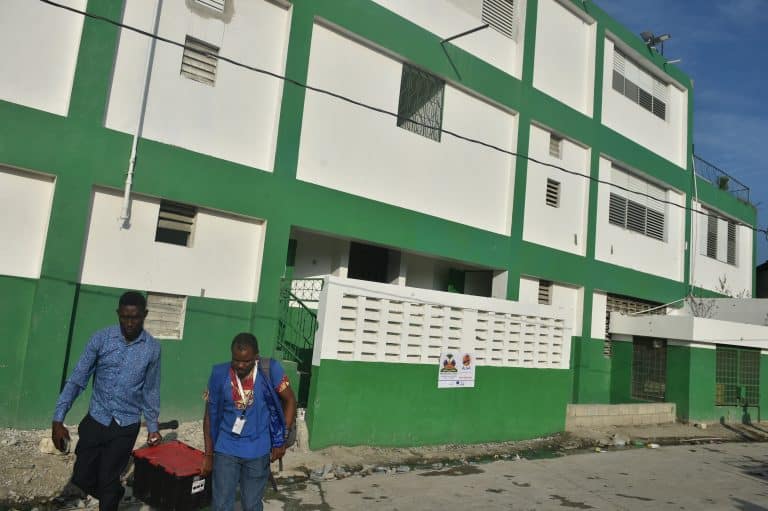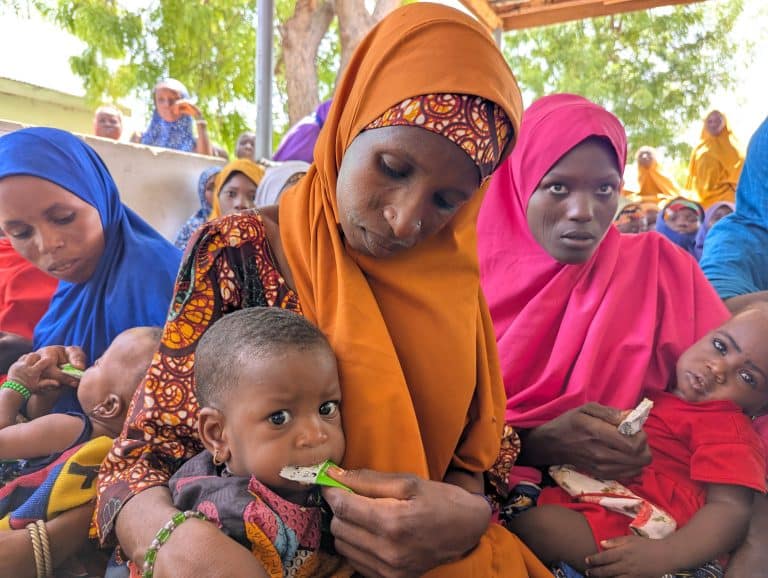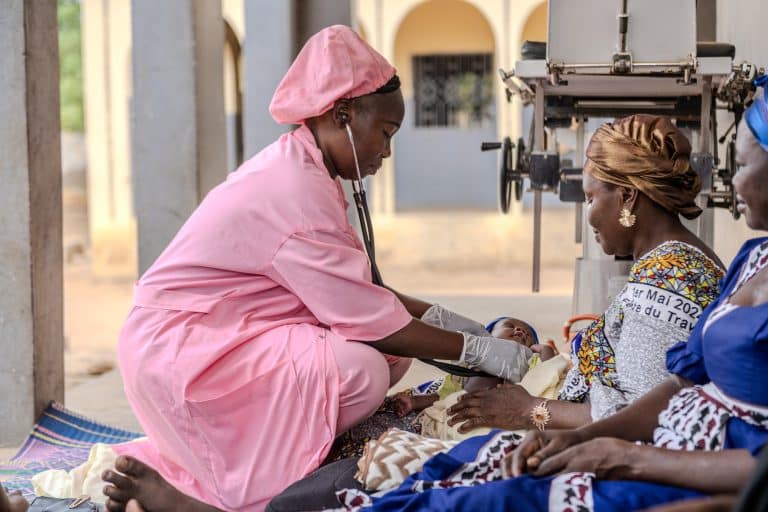Access to healthcare, adequate nutrition, and essential health practices can prevent thousands of deaths each year. ALIMA is committed to protecting, treating, and preventing childhood diseases through health programs tailored to the realities on the ground.
Humanitarian context and challenge
Insufficient healthcare system for children in Africa
In ALIMA’s countries of intervention, many children lack access to essential medical care due to:
- A lack of accessible health facilities in rural areas and in crisis-affected regions.
- Insufficient routine vaccinations, exposing children to preventable diseases.
- Malnutrition, which weakens their immune systems and increases their vulnerability.
💡Why does this matter?
- Preventable diseases remain the leading causes of child mortality in sub-Saharan Africa.
- Humanitarian emergencies worsen access to healthcare, putting the youngest at risk.
- Appropriate medical follow-up and prevention programs can save lives.
📌 Since 2019, over 6.2 million children under the age of five have received medical care from ALIMA.
➡️ To address these challenges, ALIMA is taking action to ensure quality pediatric care.
ALIMA’s action
💡How does ALIMA protect children’s health?
ALIMA adopts an integrated approach combining medical care, prevention, and research to improve child health.
🔹Nutritional care and malnutrition prevention
- Screening and treatment of both severe and moderate acute malnutrition.
- Training of local health workers and families in good nutritional practices.
- MUAC for Mothers Program: Empowering parents to detect malnutrition early with a simple bracelet.
🔹Pediatric consultations and vaccinations
- Free healthcare for children under five.
- Routine vaccinations as part of the 1,000-day program, which aims to improve immunization coverage among children and pregnant women.
- Vaccination rate exceeding 80% in the areas covered by ALIMA (Niger, Chad, Burkina Faso).
🔹Research and innovation to save more lives
🔬 AIRE Project (Improving the Identification of Respiratory Distress in Children)
- Deploying pulse oximeters to better diagnose severe respiratory infections.
- Studies ongoing in four countries (Burkina Faso, Guinea, Mali, Niger) in partnership with Inserm and Unitaid.
🎯 OptiMA: an innovative approach to fight malnutrition
- Helps eliminate the division between the treatment of moderate and severe acute malnutrition.
- The goal is to make treatment more accessible and effective.
📌 Since its creation, ALIMA has saved and treated hundreds of thousands of children through these innovative approaches.
Frequently Asked Questions (FAQs)
- Acute and severe malnutrition.
- Vaccine-preventable infectious diseases (such as measles, pneumonia, polio, etc.)
- Limited access to basic pediatric care.
ALIMA provides free healthcare in health centers and hospitals, offers nutritional and vaccination services, and conducts innovative research programs.
This initiative focuses on pregnant women and young children, integrating maternal care, nutrition, and immunization to ensure optimal protection.
On the ground
Related news

Port-au-Prince: In Cité Soleil, the CHAPI Hospital Comes Back to Life After Years of Neglect
In Cité Soleil, one of Haiti’s most vulnerable urban contexts, the CHAPI Hospital, located in the Boston area, is coming back to life after being

Integrating Nutrition and Immunization in Yobe State: Why NutriVax Matters Now
Communities in Northeast Nigeria face a worsening malnutrition crisis, driven by insecurity, food shortages and limited access to healthcare. In 2025, ALIMA has treated over

On the Frontlines with ALIMA in a Refugee Camp on the Border with Sudan
It is overflowing. Initially built to shelter 25,000 people, the Zabout camp now houses over 50,000 people. Since 2023, ALIMA and Alerte Santé, a Chadian


